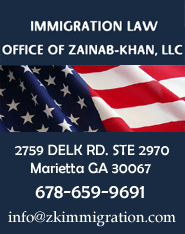|
|
|
|
|
|
British Columbia is the westernmost of Canada's provinces and is famed for its natural beauty, as reflected in its Latin motto, Splendor sine occasu ("Splendour without Sunset (Diminishment)"). It was the sixth province to join the Canadian Confederation.
The capital of British Columbia is Victoria, the 15th largest metropolitan region in Canada. The largest city is Vancouver, Canada's third-largest metropolitan area and the second-largest in the Pacific Northwest.
The province's name was chosen by Queen Victoria when the Mainland became a British colony in 1858. It references the Columbia District, the British name for the territory drained by the Columbia River, which has its origins and upper reaches in southeastern British Columbia, which was the namesake of the pre-Oregon Treaty Columbia Department of the Hudson's Bay Company. Queen Victoria chose British Columbia to distinguish what was the British sector of the Columbia District from that of the United States ("American Columbia" or "Southern Columbia"), which became the Oregon Territory in 1848 as a result of the treaty.
British Columbia's capital is Victoria, located at the southeastern tip of Vancouver Island. Its most populous city is Vancouver, located in southwest corner of the mainland called the Lower Mainland. Other major cities include Surrey, Burnaby, Coquitlam, Richmond, Delta, and New Westminster in the Lower Mainland; Abbotsford, Pitt Meadows and Langley in the Fraser Valley; Nanaimo on Vancouver Island; and Kelowna and Kamloops in the Interior. Prince George is the largest city in the northern part of the province, while a village northwest of it, Vanderhoof, is near the geographic centre of the province.
There are 14 designations of parks and protected areas in the province that reflects the different administration and creation of these areas in a modern context. There are 141 ecological Reserves, 35 provincial marine parks, 7 Provincial Heritage Sites, 6 National Historic Sites, 4 National Parks and 3 National Park Reserves. 12.5% (114,000 km²) of British Columbia is currently considered protected under one of the 14 different designations that includes over 800 distinct areas.
British Columbia contains seven of Canada's national parks:
Glacier National Park
Gulf Islands National Park Reserve
Gwaii Haanas National Park Reserve and Haida Heritage Site
Kootenay National Park
Mount Revelstoke National Park
Pacific Rim National Park Reserve
Yoho National Park
British Columbia also contains a large network of provincial parks, run by BC Parks of the Ministry of Environment. British Columbia's provincial parks system is the second largest parks system in Canada (the largest is Canada's National Parks system).
In addition to these areas, over 4.7 million hectares of arable land are protected by the Agricultural Land Reserve.
Given its varied mountainous terrain and its coasts, lakes, rivers, and forests, British Columbia has long been enjoyed for pursuits like hiking and camping, rock climbing and mountaineering, hunting and fishing.
Water sports, both motorized and non-motorized, are enjoyed in many places. Sea kayaking opportunities abound on the British Columbia coast with its fjords. Whitewater rafting and kayaking are popular on many inland rivers. Sailing and sailboarding are widely enjoyed.
Ice sailing in WhistlerIn winter, cross-country and telemark skiing are much enjoyed, and in recent decades high-quality downhill skiing has been developed in the Coast Mountain range and the Rockies, as well as in the southern areas of the Shuswap Highlands and the Columbia Mountains. Snowboarding has mushroomed in popularity since the early 1990s. The 2010 Winter Olympics downhill events will be held in Whistler-Blackcomb area of the province, while the indoor events will be in the Vancouver area.
In Vancouver and Victoria (as well as some other cities), opportunities for joggers and bicyclists have been developed. Cross-country bike touring has been popular since the ten-speed bike became available many years ago. Since the advent of more robust mountain bikes, trails in more rugged and wild places have been developed for them. Some of the province's retired rail beds have been converted and maintained for hiking, biking, and cross-country skiing. Longboarding is also a popular activity because of the hilly geography of the region.
Horseback riding is enjoyed by many British Columbians. Opportunities for trail riding, often into especially scenic areas, have been established for tourists in numerous areas of the province.
British Columbia also has strong participation levels in many other sports, including golf, tennis, soccer, hockey, Canadian football, rugby union, softball, basketball, curling and figure skating. British Columbia has produced many outstanding athletes, especially in aquatic and winter sports.
Consistent with both increased tourism and increased participation in diverse recreations by British Columbians has been the proliferation of lodges, chalets, bed and breakfasts, motels, hotels, fishing camps, and park-camping facilities in recent decades.
In certain areas, there are businesses, non-profit societies, or municipal governments dedicated to promoting ecotourism in their region. A number of British Columbia farmers offer visitors to combine tourism with farm work, e.g. through the WWOOF Canada program.
|
|
|




|
|
|
|
|